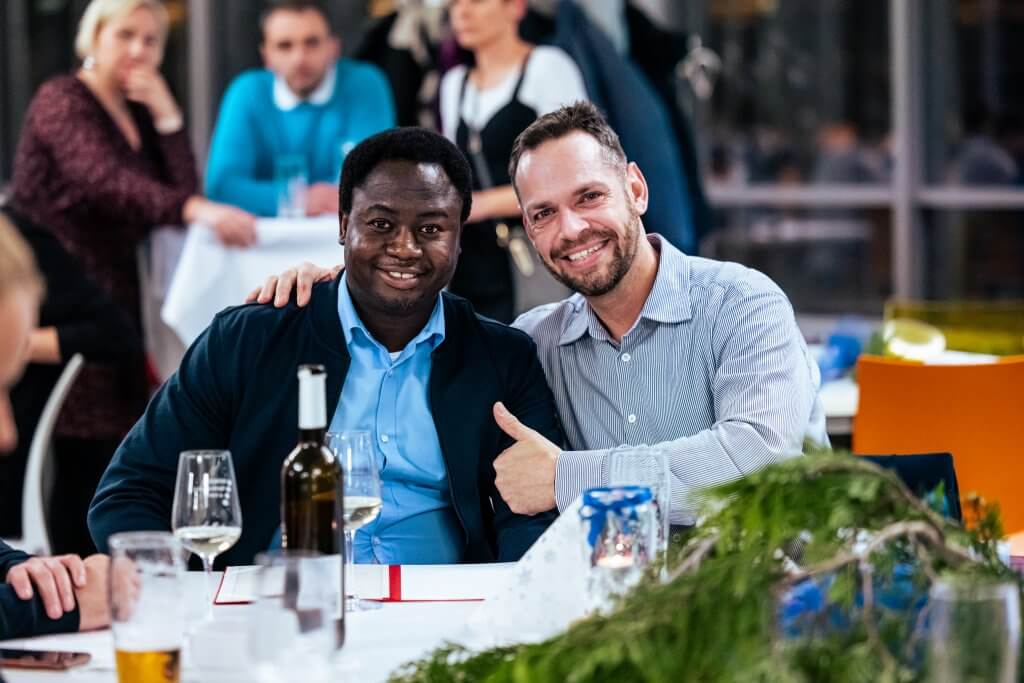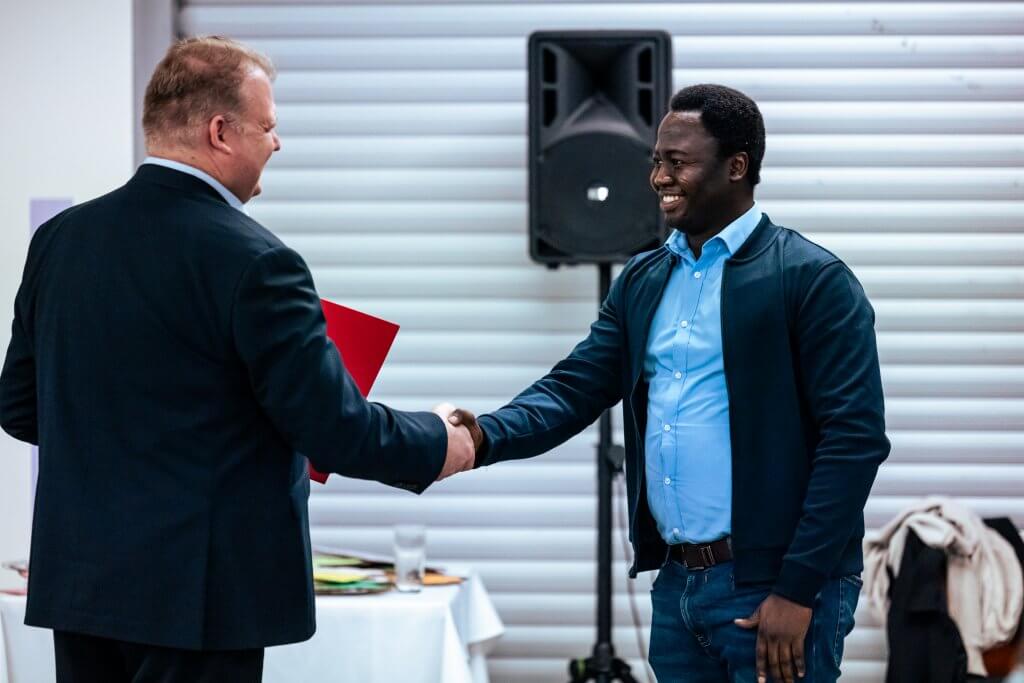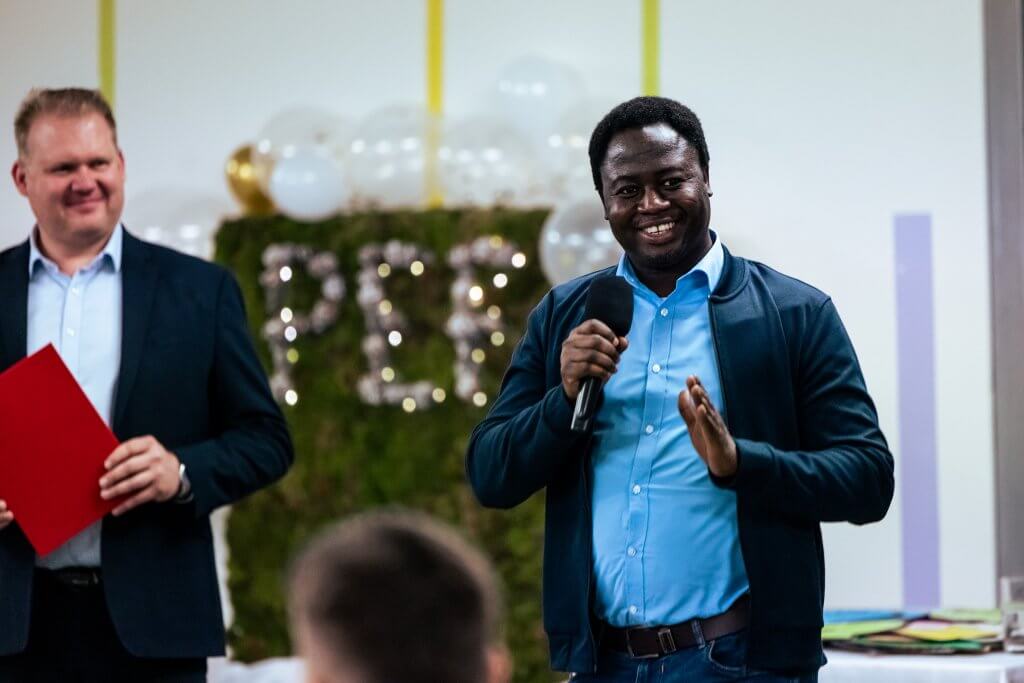Dennis Nchor over more than a decade at the Faculty of Business and Economics has become an expert in macroeconomics, the study of the shadow economy, and economic growth in developing countries. He is also a much-loved teacher and mentor to international students, particularly those coming from Africa. Read the full interview to learn about his professional journey and his personal connection to our faculty, the city of Brno, and the Czech Republic.
Dennis, you’re originally from Ghana. You’ve now been at Mendel University for more than a decade. What first brought you here?
I graduated from the University of Ghana in 2007, where I spent a year as a teaching assistant as part of my national service. Around that time, Mendel University offered three scholarships to students from Ghana. I was fortunate to be selected, and in 2008, I came to study at the Faculty of Business and Economics.
Was your plan from the beginning to stay at Mendel University, at the Faculty of Business and Economics?
The purpose was to study, not necessarily to stay. Back then I was open to opportunities anywhere in the world. If something had come up at MENDELU, I would have taken it. And if it had been elsewhere, I was ready to explore that too. My main goal was always to pursue a PhD, and eventually, this faculty gave me that chance.
What exactly was the opportunity at MENDELU?
I had a strong network with some of the professors from my Master’s studies. They knew about my interest in pursuing a PhD. They also knew that I hadn’t managed to secure a spot before and had gone back home. So when an opening for a PhD position came up, I was contacted. I was very glad to accept because I had been looking forward to it.
What was your very first impression when you arrived in Brno?
The difference in infrastructure really struck me. Compared to back home, the level of development here was far more advanced. I also remember travelling from Prague to Brno, and the bus arrived exactly on time. That efficiency was new to me, and it made a strong impression.
Did you feel settled in Brno during your first years, or did it take time to adjust?
I settled in quite quickly. My main concern at first was performing well in class. When I saw that the classroom environment worked perfectly for me, it eased my anxiety and helped me adjust fast. And also the sense of community really helped me feel at home. The local Czech students were very welcoming and included us in social gatherings, often going out together.
Nowadays, there’s a buddy system for foreign students. Did you have something like that when you arrived?
Back then, we didn’t have formal buddies. Our classmates were our support. But the staff in the international office were incredibly helpful, especially the ladies at the rectorate who guided us whenever we were lost or needed information. Combined with friendly classmates and supportive professors, that network made settling in much easier.
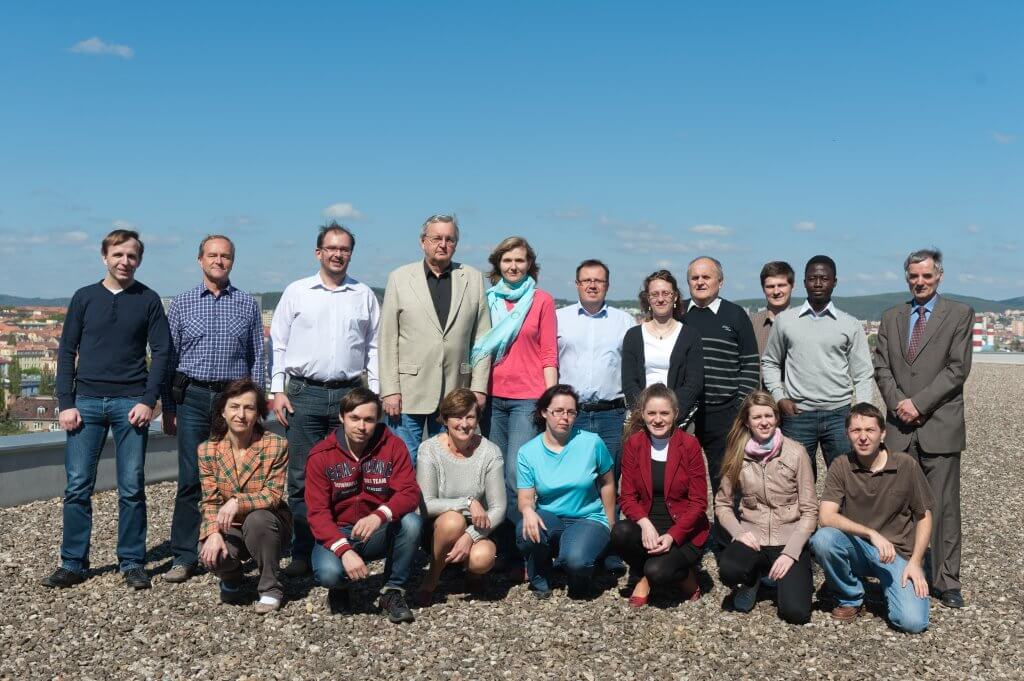
After working in Ghana for a few years, you returned to Brno for your PhD. How did you find the program back then?
It was a step up from my master’s. The PhD here is very research-oriented. You need to apply your knowledge to gather information and develop new ideas. When I started in 2013, my supervisor, Professor Adamec in the Department of Statistics, made sure I had everything I needed: an office, computer, software, and access to resources. That support, along with funding through the IGA project, allowed me to attend conferences and publish, which was crucial for the start of my PhD.
What was the focus of your research during your PhD?
My research looked at the economic challenges in Ghana, but I narrowed it down to crude oil. By then, Ghana had just discovered crude oil, and I was curious about the impact of this resource on our economy. There are many theories about countries that discover oil and then face economic problems instead of growth. I wanted to see whether Ghana could make positive progress or risk stagnation. My work was more of an application of statistical approaches to economic theory.
Do you have any advice for international students considering a PhD at your faculty?
There are real requirements, like grades and, most importantly, having a supervisor willing to guide your research. Motivation is the key. Some students start but quit after a year or two. Your career goals matter: if your aim is just to have the title, you’re likely to give up when challenges come. But if your goal is to learn research skills and contribute meaningfully, you’ll be resilient. For me, the motivation was clear, I wanted to be a researcher and work in academia.
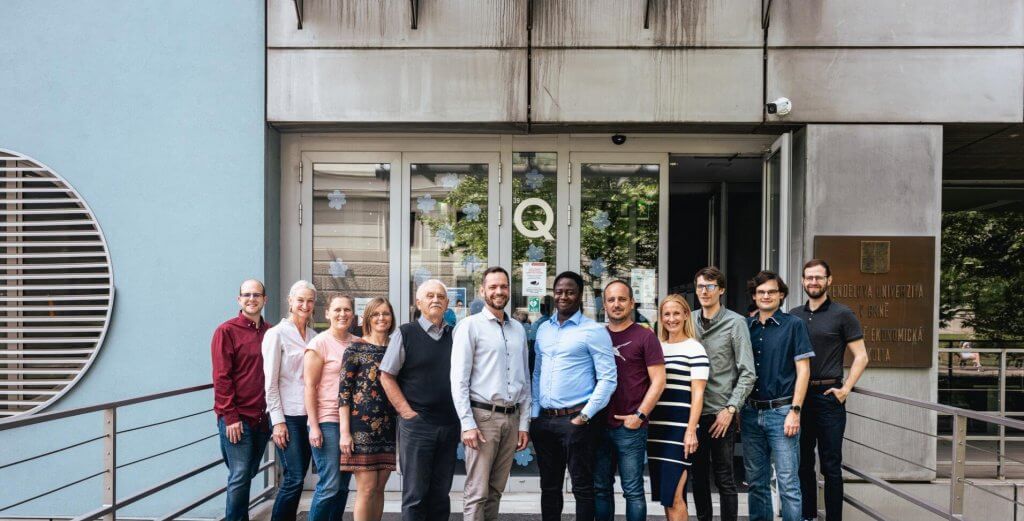
Can you tell us about your current fields of research?
During my PhD, I focused on underground economics, businesses operating in the shadow economy, especially in developing countries where transactions aren’t formally recorded. Afterwards, I moved into macroeconomic issues. I’ve studied the impact of technology and AI on labour markets, particularly how changes affect employers, employees, and students.
More recently, I’ve examined monetary integration in West Africa. Questions about whether countries are ready for a single currency or monetary union, similar to the EU. I’ve also explored the gap between West Africa and the developed world. While some countries experience high growth from new commodity discoveries, this growth is often short-term and doesn’t necessarily help them catch up with global GDP levels. Overall, my research revolves around applied macroeconomics and development issues, aiming to address real economic challenges.
Was the paper on currency areas the one that you received a Professor Sojka Award?
Yes, that’s the one. The Professor Sojka Award is presented annually by the Dean of the Faculty of Business and Economics at Mendel University in Brno for outstanding scientific achievements.
Would you say it’s the paper you’re most proud of?
Absolutely. It took me many years to conceptualise. I first started thinking about it during my PhD, asking questions about optimal currency areas because it’s such a pressing issue back home. I would gather data, do analyses, then leave it aside until the next year, refining it over time. It wasn’t until 2022 that I felt I had everything ready to write the paper properly. When it was published and the faculty acknowledged it, it gave me a huge motivation to do more research.
Were there specific ways the faculty supported you in your academic growth, other than by awarding you?
I consider myself a product of this university. I came here very young, at 25, and I started my entire research career here. They provided the platform, and that made all the difference. Every person needs a space to show what they can do. Beyond that, they trusted me, gave me motivation, and supported me with resources, access to classrooms, teaching opportunities, software, databases, and even a monthly stipend during my PhD. It was like learning to walk as a child, I made mistakes, but the faculty gave me the space and support to grow.
You teach both bachelor’s and master’s students. How do you balance teaching with your research?
That’s one of the biggest challenges in academia. You have to genuinely love both teaching and research. Teaching takes time, of course, and some colleagues find it hard to do both, but research defines you as an academic. Publications and discoveries are lasting outputs that reflect your work beyond the classroom. I love research. I’m always asking questions I want to solve, constantly pushing myself. The faculty provides the platform and resources, but the drive to go beyond the classroom, to pursue research for yourself and for the faculty, has to come from within. That motivation makes combining teaching and research possible.
Can you describe yourself as a lecturer?
For me, teaching isn’t teaching unless you bring the students along with you. I aim to explain concepts so they truly understand, and in a way that makes them proud to recommend the school. I teach microeconomics and master’s seminars, often with international students, and I try to make them feel part of the class. I understand their anxieties because I was once in their shoes. I also provide consultations, both official and unofficial, especially for African students, as I coordinate with them. I try to make them feel comfortable and reduce their anxiety, which I see as crucial for their learning and progress. Because when I came here for the first time, I was shy and introverted in a new environment. I remember how much encouragement I received from my teachers, and I try to do the same with my students.
Are you able to manage your daily schedule around lectures and research?
Yes, the schedule is flexible, and that makes a big difference. Sometimes the times aren’t perfect, but the faculty is considerate, and you can adjust to make time for research. I personally prefer lectures in the mid-afternoon. It gives me the morning to write down ideas and do research before teaching.
You’ve been teaching at this faculty for over ten years. Have you noticed any differences between students then and now?
One of the biggest changes is how students use technology. Years ago, we spent a lot of time in the library, reading physical books and making notes. Today, students are much more inclined to use AI tools like ChatGPT and other digital resources. That’s a huge shift in how they learn.
Do you have any message for people abroad considering applying for a PhD programme at the Faculty of Business and Economics at Mendel University in Brno?
I would say that the Czech Republic is one of the best countries for studying, and Brno is a city where you can feel at home. It’s not too big and the atmosphere is friendly. At the faculty, we have English programs for bachelor’s, master’s and PhD students in economics and management and informatics. The teaching isn’t just theoretical; it’s practical and prepares you for the job market.
The International Office is supportive, helping with visas and paperwork, and the faculty provides a welcoming environment. The tuition is very affordable compared to other countries in Europe and beyond—around €3,200, or 80,000 Czech crowns. Yet you get access to quality classrooms and technology. If the experience were not good, I wouldn’t have stayed all these years.
More news
-
Milan Dobrovolný regularly follows updates from the International Office at the Faculty of Business and Economics. That’s where he came across a call for applications to the MIRAI programme, organized by the Japanese Embassy. “I was looking for…2. 3. 2026
-
MENDELU PEF Students Take 3rd Place in CFA Research Challenge
Students from the Master’s program in Finance at our faculty achieved an outstanding result. In the national finals of the CFA Institute Research Challenge, they secured 3rd place among universities across the Czech Republic. Filip Matoušek,…26. 2. 2026 -
We explain the bachelor’s thesis project clearly and in a way that truly makes…
This year, the first students will be writing a project instead of a bachelor’s thesis. What exactly does that involve? The bachelor’s project is a concise academic report that outlines the solution to a specific problem closely related to the…25. 2. 2026 -
PROM 2025 Programme - Wroclaw University of Economics and Business
Greetings from Wroclaw University of Economics and Business. We are pleased to inform you that the Wroclaw University of Economics and Business is currently recruiting for the PROM 2025 Programme - Short-term Academic Exchange, funded by the…24. 2. 2026 -
The results of the study, conducted in collaboration with UMO, have been…
Petr Jehlička from the Department of Local and Regional Studies at the Czech Academy of Science presents the findings of a new study on food waste in Czech households. The research was published in the peer-reviewed journal British Food Journal and…24. 2. 2026 -
How to improve waste sorting in Czech munipalities? Lucie Veselá discussed the…
The future of waste sorting and new challenges in municipalities’ environmental behaviour were the main focus of the roundtable discussion “Ecology and Its Future”, held on 21 January 2026 at the Avion Hotel in Brno. Mayors from across the Czech…9. 2. 2026 -
CitySense - Call for MENDELU Graduate Participants
Joint MendelU and BGU Urban Sustainability Week in Brno, Czech Republic Dates: 9 to 12 February 2026 Mendel University in Brno and Ben-Gurion University of the Negev invite motivated M.Sc and Ph.D. students to CitySense, a week-long workshop on…13. 1. 2026 -
Finance and Banking Experts Met in Brno for World Finance & Banking Symposium…
Researchers, academics and other professionals in field of banking and finances from around the world gathered in Brno during 15th to 17th December for the World Finance & Banking Symposium 2025, hosted by the Faculty of Business and Economics…12. 1. 2026 -
THA School of Business - 6th International Week
When: 15th –19th June 2026 Where: Technical University of Applied Sciences Augsburg We look forward to welcoming a diverse group of colleagues from across the globe. You are welcome to teach in English or German, and in…2. 1. 2026 -
Graz - Summer school
The call for applications is open. GUSEGG 2026 will take place from 5–18 July on the topic “Curiosity, Concern, and Commitment: State – Society – Religion”. Funding and scholarships are available; the application deadline is …22. 12. 2025
